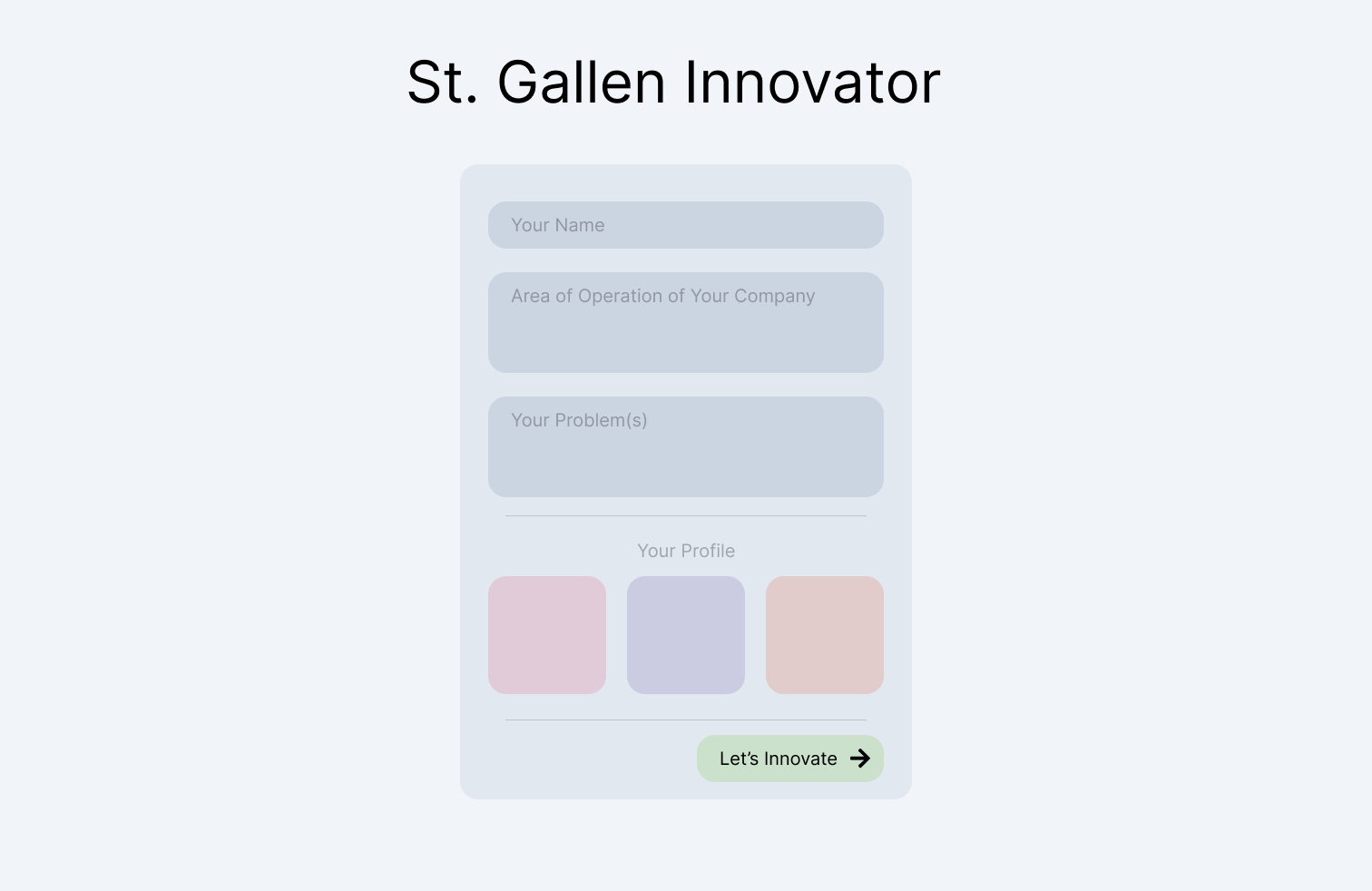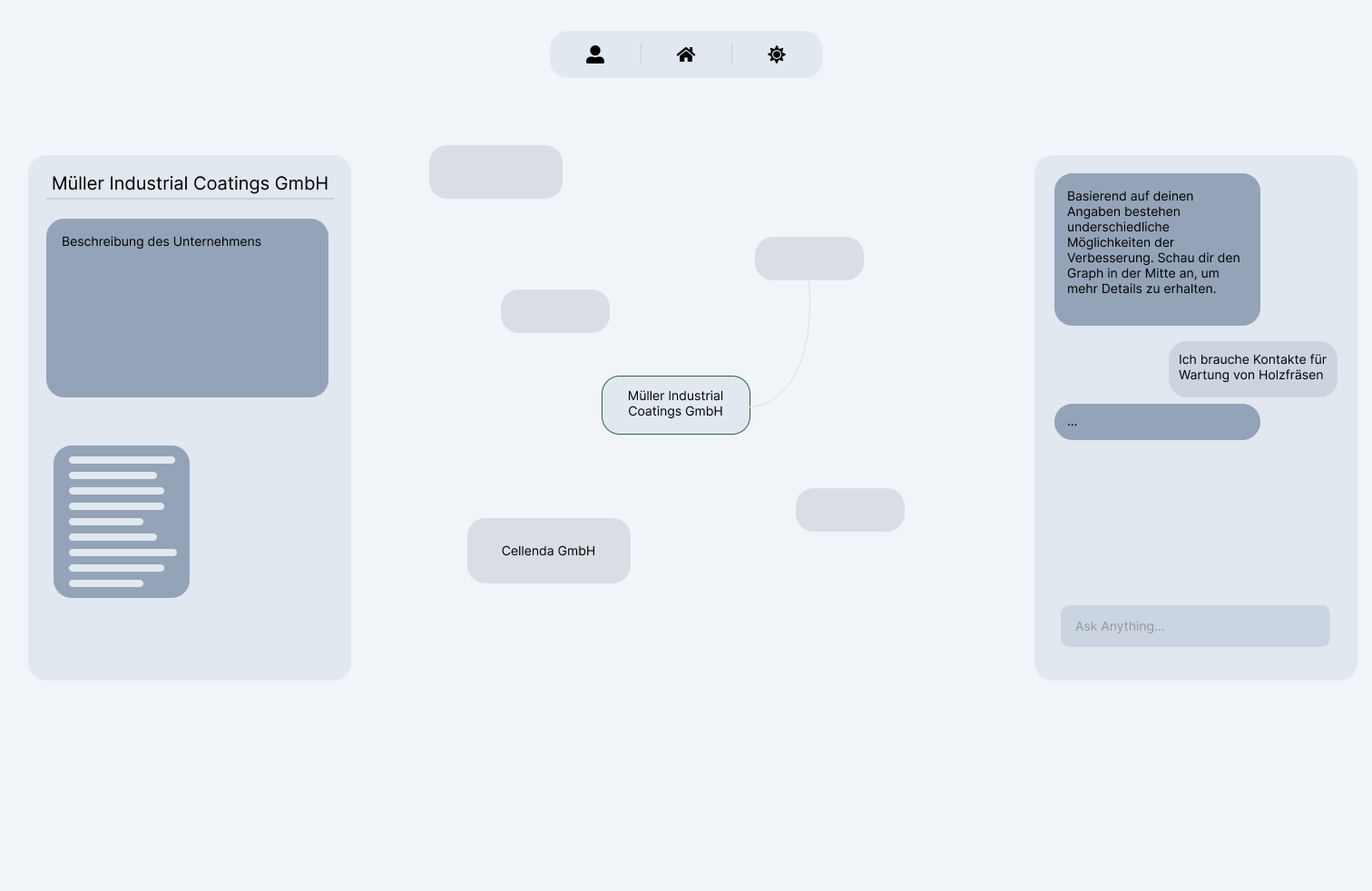Innovation is not a one-size-fits-all process. The Innovation Ecosystem project was developed during START Hack 2025 to provide an AI-powered Innovation Coach that guides users through a personalized innovation journey. By tailoring recommendations to individual user personas, our platform ensures engagement, motivation, and relevant next steps to help businesses and entrepreneurs navigate the complexities of innovation effectively.
- Video Demonstration
- Screenshots
- Draft
- Figma Design
- Team Members
- Problem Statement
- Technologies Used
- Getting Started
- Acknowledgments
Watch our project in action and see how the AI-powered Innovation Coach works in real-time:
This screenshot showcases the main interface of our Innovation Ecosystem platform, highlighting its clean UI and intuitive navigation.

An example of how the AI-driven innovation roadmap guides users through their personalized innovation journey.

Our initial wireframe sketch illustrating the early concept and structure of the platform.
We used Figma to design our user interface, ensuring a seamless and engaging experience.
Meet the amazing team behind Innovation Ecosystem:
Hackathon Challenge Repository
Existing digital solutions fail to provide personalized guidance for innovation. Users often feel lost, unsupported, and eventually disengage due to the lack of tailored assistance. The Innovation Ecosystem addresses this issue by offering:
- Personalized onboarding based on experience level.
- A dynamic user journey with evolving recommendations.
- Industry-specific insights and support.
- Interactive engagement and real-time assistance.
- Next.js – React framework for performance and scalability.
- Shadcn UI – Modern component library for UI elements.
- Tailwind CSS – Utility-first CSS framework for rapid design.
- React Flow – Interactive visualization library for user journeys.
- FastAPI – High-performance Python framework for backend logic.
- SQLite – Lightweight database for fast and efficient storage.
- OpenAI API – AI-driven insights and recommendations.
cd client
npm install
npm run devcd ./server/backend/
python3 -m venv venv
source venv/bin/activate
pip3 install -r ./app/requirements.txt
export OPENAI_API_KEY=[your token here]
python ./app/app.pySpecial thanks to the Canton of St.Gallen for providing the challenge and resources to make this project possible.


